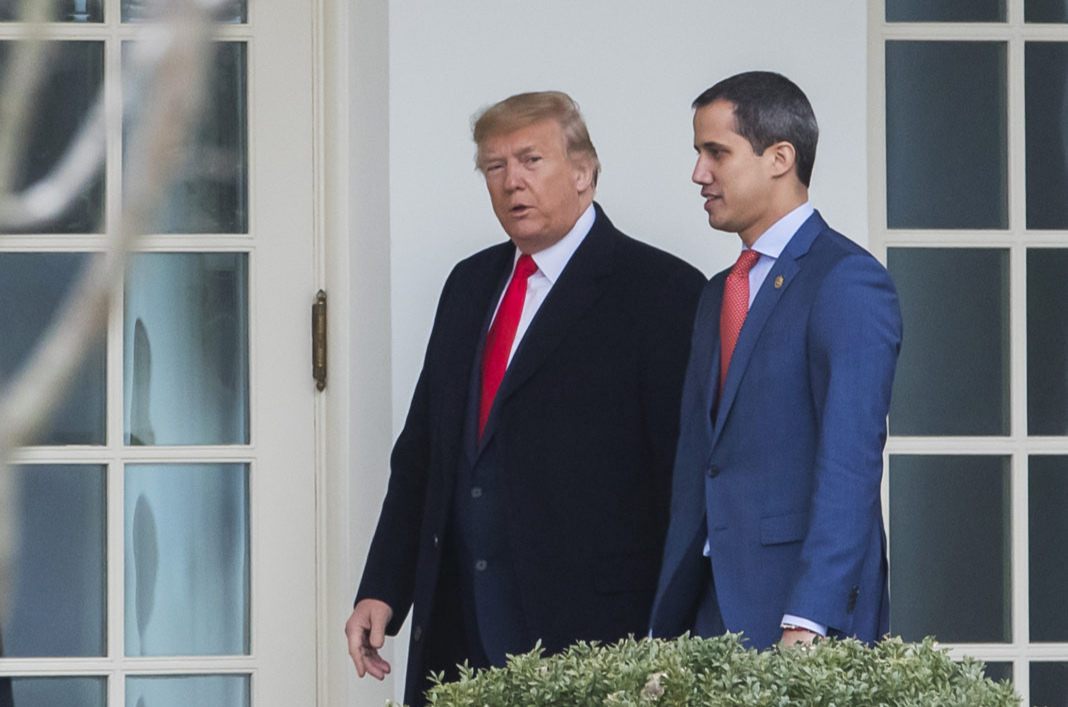
Former President Donald Trump and opposition leader Juan Guaido, Washington D.C., Feb. 4, 2020. | Photo: Twitter/ @BricenoJell
Washington, May 17 (RHC)-- In the book "A Sacred Oath" published in early May, Mark Esper, who served as U.S. Secretary of Defense during President Donald Trump administration, made revelations about the U.S. policy of aggression towards Venezuela and Cuba.
On February 4, 2020, Trump and opposition leader Juan Guaido held a meeting in Washington, DC. After this event, U.S. officials increased their interest in planning actions such as a military invasion against Venezuela, the use of Colombian mercenaries in Bolivarian territory, the assassination of Venezuelan President Nicolas Maduro, a naval blockade of Cuba and Venezuela, and the confiscation of Venezuelan oil in international waters.
The former secretary's book reveals that, during a meeting with all the heads of the U.S. intelligence community held in March 2020, the Trump administration was willing to suffocate the Cuban and Venezuelan economies through a total maritime blockade, an idea that was initially questioned as absurd.
"Esper agreed with cutting off all oil revenues to Venezuela but believed that a naval blockade of Cuba as in the 1962 missile crisis was an old and outdated idea," Venezuela's Permanent Representative to the United Nations Samuel Moncada explained while summarizing Esper's book through social networks.
As an alternative to the total military blockade, however, National Security Adviser Robert O'Brien proposed to stop and confiscate all ships carrying Venezuelan oil to Cuba.
"Oil was the currency by which Caracas compensated Havana for its support. We would eventually learn that Mauricio Claver-Carone, the NSC senior director for the Western Hemisphere, was pushing a hard line in the White House, and he found a sympathetic ear for military options in O'Brien," Esper wrote in his "Memoires of a Secretary of Defense in Extraordinary Times."
"Esper knew that Trump, O'Brien and Claver-Carone favored the use of military force without measuring the international justification and consequences. But if he objected from the outset, he would be labeled as 'dragging his feet' on Trump's instructions," Moncada pointed out.
The confiscation of oil tankers, however, was not a feasible idea. In addition to the fact that the Trump administration had not yet found the legal grounds to justify seizing Venezuelan ships, it had not foreseen what the consequences of the possible use of force in the confiscation operations could be.
"Nor did they think about what to do with the already captured ship, to which port it was taken, who was piloting the ship, and what to do with the seized oil. Trump, O'Brien and Claver-Carone didn't understand these issues. All agreed to seek the necessary answers before acting," Moncada summarized.

